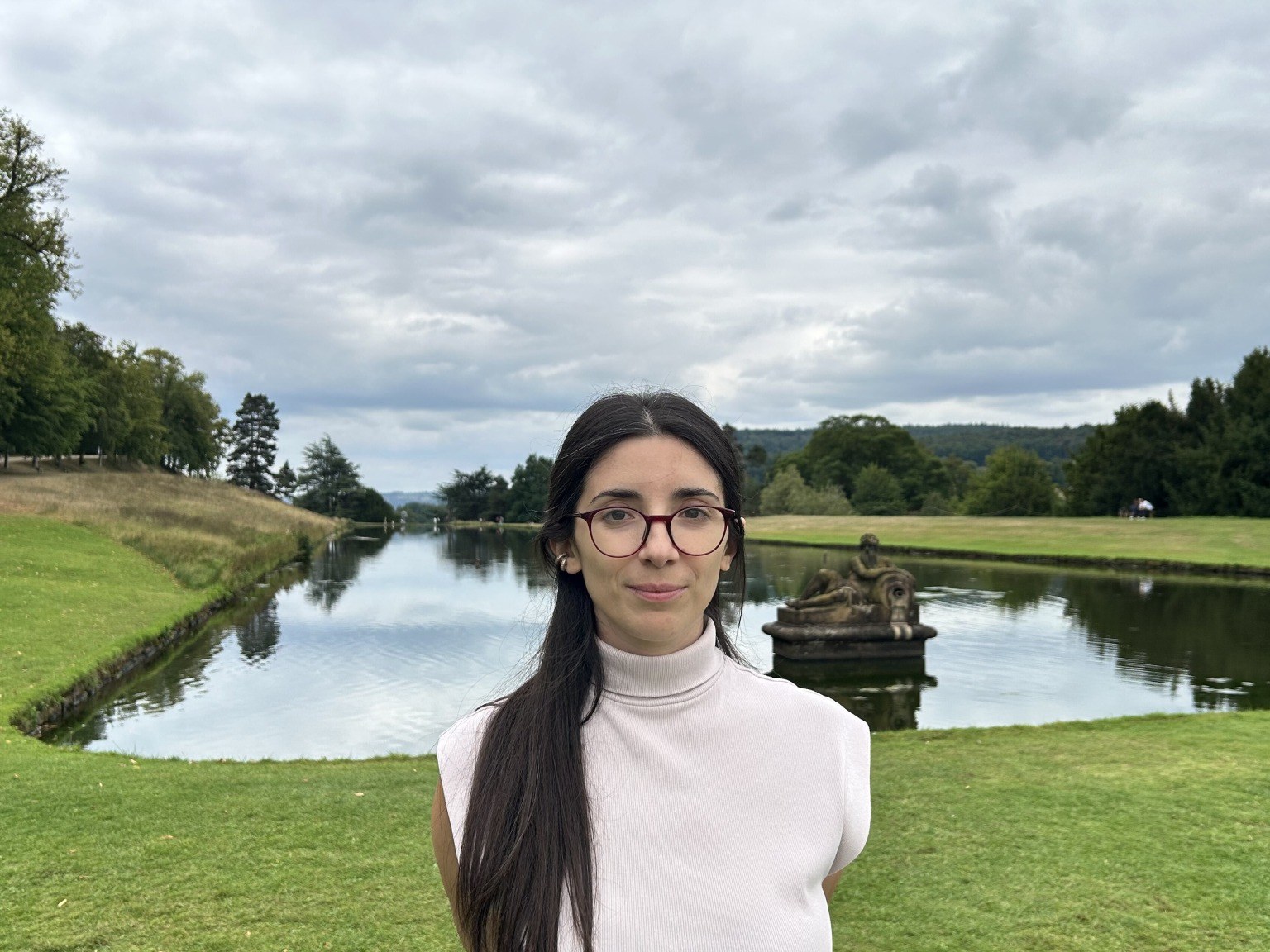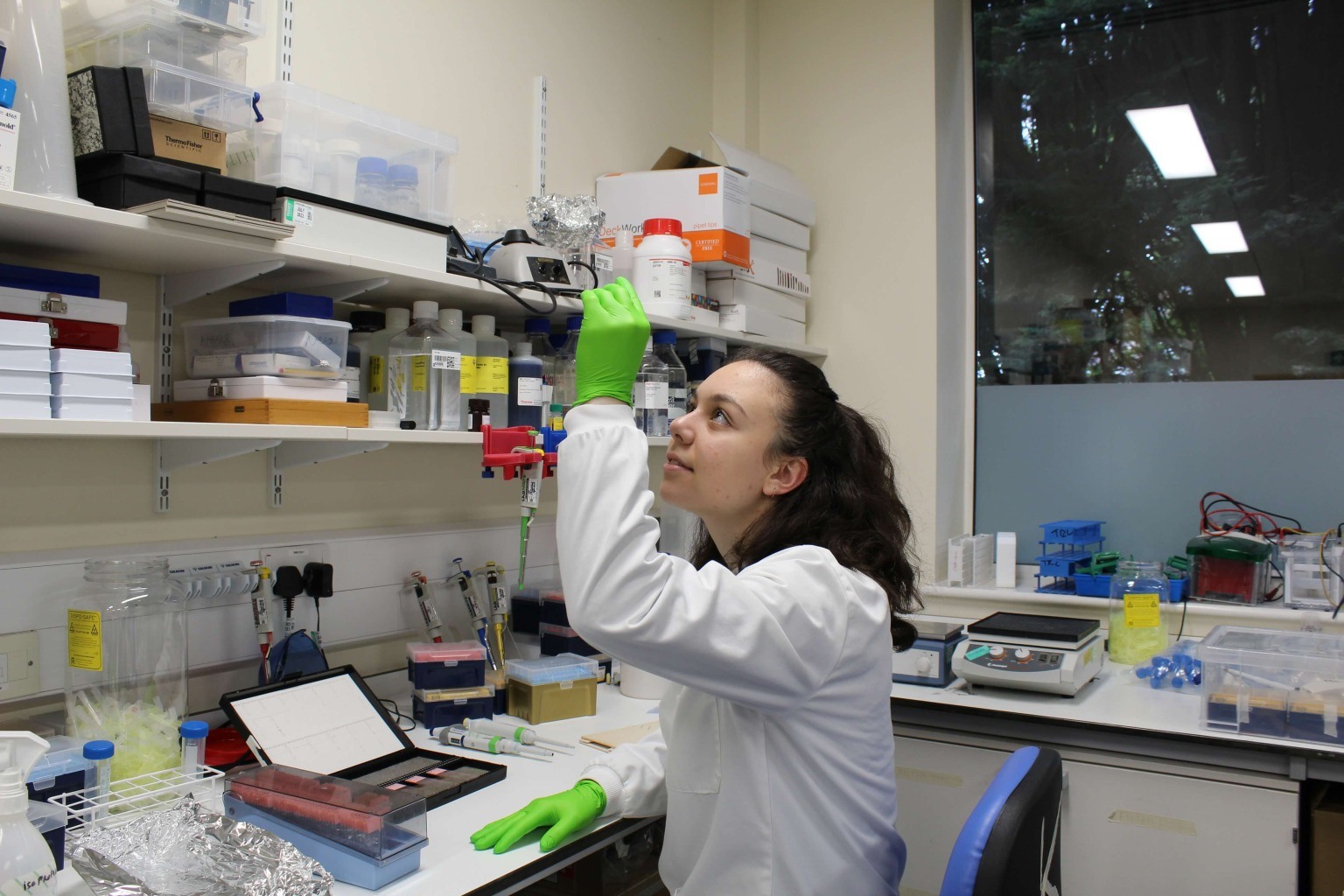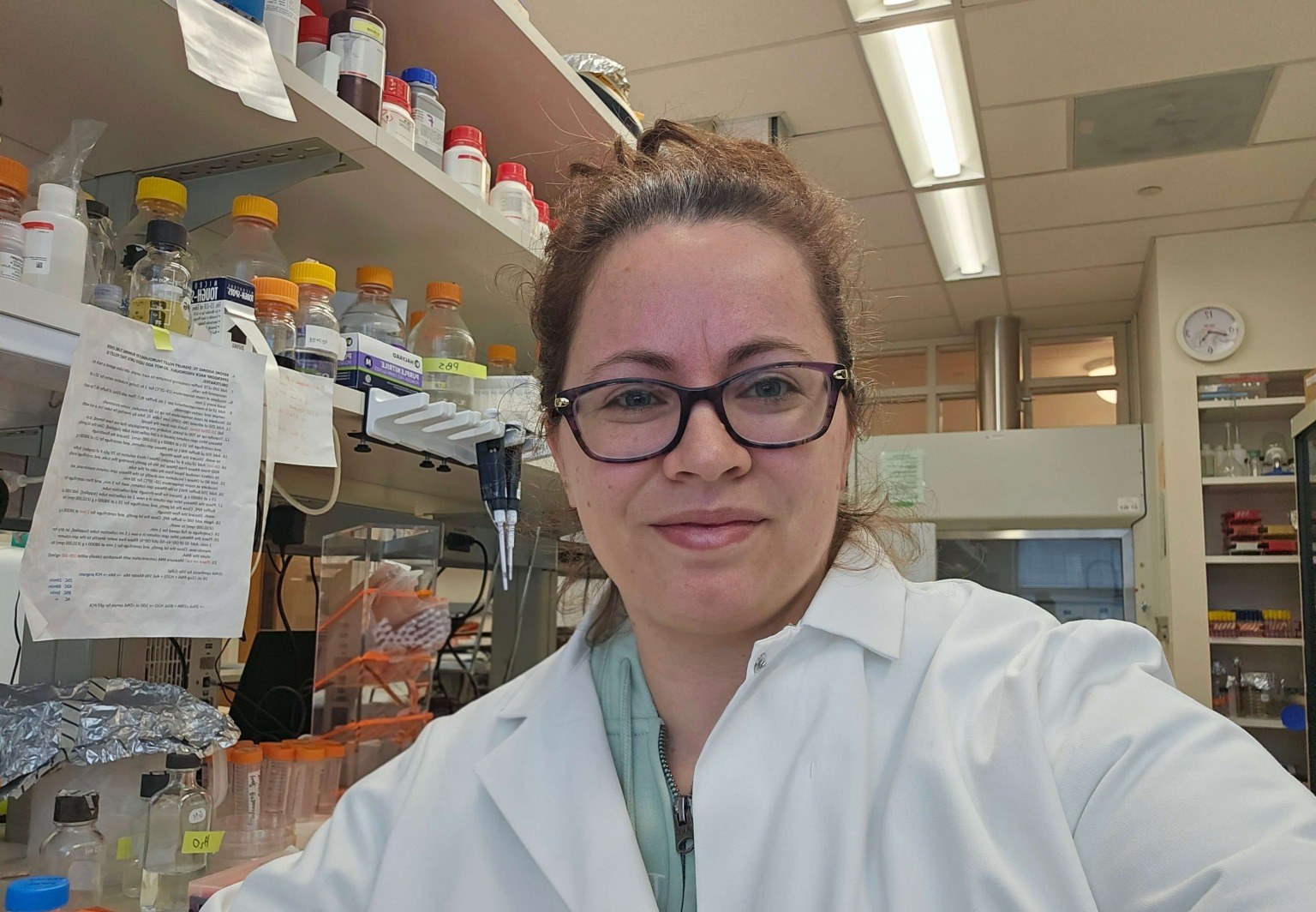
Exploring the invisible: Dr. Ariadni Boziki simulates the molecular world
Chrysovalantou Kalaitzidou

Magazine / Interviews , Technology , Mentoring
Athena Vakali is a leading female scientist in the world of informatics and STEM, and an active advocate for gender equality in ICT (Information and Communication Technology), both in Greece and internationally. With a career spanning almost four decades, she has experienced the evolution of computer science from its early days to the current explosion of data-driven technologies. Athena Vakali is a Professor in the School of Informatics at the Aristotle University of Thessaloniki (AUTH), Director of the Data Science and Web Laboratory (Datalab), and the co-founder and scientific coordinator of the tech startup exanta.io. Her research focuses on the intersection of human-centered Data Science and Artificial Intelligence. She has numerous publications, awards, participation and coordination of EU projects and service in the scientific community. Beyond academia and research, she is strongly committed to promoting gender equality, diversity, and inclusion in STEM. She has organized and participated in conferences related to gender equality, such as the ACM Gender Equality Summit '22 and the ACM WomenCourage '23, and she regularly advocates on these issues. Greek Women in STEM had the honor to host Professor Vakali as the opening keynote speaker at the She STEMs 2024 symposium.
Professor Vakali, you pursued your undergraduate and doctoral degrees in informatics in the 1980s and 1990s. How has the field evolved since then, particularly in undergraduate studies, given the recent explosion of AI tools and technologies?
I entered the field of informatics after completing my undergraduate mathematics studies in the mid-80s at AUTH. Then, I earned a master’s degree in computer science, as a Fulbright scholar, at Purdue University (USA), before returning to AUTH for my PhD at the School of Informatics, which was newly established back then. At that time, informatics was still very technically oriented, the Web was still in its very early steps, and our curricula focused on programming, algorithms, operating systems, and early web technologies. Over the years, the field has expanded and shifted towards data-driven and human-centered directions, and today AI rapidly reshapes how we learn, teach, socialize, and operate. In my opinion, students at Informatics schools now need to understand not just how IT systems work, but how they affect people and society overall. Our Datalab team works on topics that incorporate human-centric elements in data and AI methods, and in all of our activities, we emphasize the urgency and the need for trustworthy data science and AI.

As head of the Data and Web Science Lab, Datalab has participated in over 25 EU projects, leading more than 15 in areas like advanced data management, social networks, Web content mining, and cloud computing. Are there any projects, past or current, that you are particularly excited about, and what draws you most to this research area?
Over the past few years, I have been involved in more than 25 EU projects, in over 15 of them as coordinator of AUTH partnership schemes. These projects address topics like social network analytics, trustworthy AI, and data infrastructures. What fascinates me the most are those projectadvocate for s that blend human-centered AI with societal benefits. For instance, Datalab has been involved in projects that aim to detect misinformation and foster trust in AI (e.g., IANUS), explain biases in machine learning, support wellbeing via sensing and quantified self-analytics (e.g., RAIS), and integrate the gender dimension in AI innovation (e.g., GILL). A recent highlight for me was the scaling up of our research to a conference contribution on “Ties of Trust: a bowtie model to uncover trustor-trustee relationships in LLMs”, which aimed to highlight how user trust in AI and LLMs can either be maintained or lost. Overall, it’s this bridge between robust technical work and real-world social impact that I find most inspiring, and this is precisely the kind of research that defines our Datalab and the mission of our spinoff exanta.io.
You are the academic co-founder of the tech startup Exanta. What inspired you to start the company? What challenges does it aim to address, and how does it translate your research into real-world applications?
Exanta emerged from our drive to turn research into real-world impact and benefit multiple, diverse stakeholders. At Datalab, we have explored human-centered data science and developed methods, techniques, and tools to understand AI decisions, ensure fairness, and analyze complex content inter-relationships. With Exanta, we translate those into services and practical solutions that help organizations manage data ecosystems with confidence and transparency. For instance, some of our solutions that encompass human-centric elements (e.g., bias) to AI and LLM pipelines pose challenges when transforming our scientific work into market-ready solutions. Clients, markets, and adherence to regulations (for example, the recently established EU AI Act) demand agility and compliance testing. Still, the delivery of IT solutions to end-users can be incredibly fulfilling, knowing that we help them advance their operations and productivity. Exanta is for me a strong proof that rigorous academic research and scientific groundwork can drive real innovation, empower businesses, and inspire young researchers to make radical human-centric decisions.
Diversity and inclusion are central to building better science, balanced teamwork, and more inclusive STEM endeavors. Representation matters, but complementary efforts are needed to ensure both structural and cultural change. Mentorship programs and gender policies accompanied by institutional commitment to equality are vital… as well as building technologies that people can trust.
Drawing from your experience in both research and entrepreneurship, what advice would you give to students who are deciding between a career in academia or industry?
This is a very timely question, as the industry growth nowadays is undeniable. One fact I like to share with students is that academia and industry are not mutually exclusive. On the contrary, one can work in both or shift between them. Academia encompasses teaching, mentorship, and scientific discovery. All these ensure critical engagement. Industry brings a fast pace, application, and business impact. I believe one should potentially try both, for instance, through internships, research scholarships, or startups, to find what suits them best and satisfies their career aspirations. Whether one’s goal is discovery or delivery, skills like adaptability, teamwork, and resilience will serve them in both professional pathways. Also, one shouldn’t hesitate to change and reorient their paths. My own journey shows that crossing between the two is possible, with Datalab on one side and Exanta on the other. Overall, I would advise our students to explore what triggers their interests but also fits with their personality. Definitely, there is no “one solution fits all” suggestion. Our students should consider how fortunate we are to serve such an emerging and pioneering field with so many open and exciting topics and pathways.
You have been deeply involved in advancing diversity and inclusion, from chairing the ACM Gender Equality Summit '22 to delivering keynotes and participating in EU projects that strive to promote gender equality and excellence. How do these efforts shape the next generation of students in STEM education, and what still needs to be done to achieve gender balance and equal opportunities?
Diversity and inclusion, for me, have undeniable value. They are central to building better science, balanced teamwork, and more inclusive STEM endeavors. Through organizing the ACM Gender Equality Summit ’22, serving as a keynote in WomenCourage ’23, and speaking at symposiums like the She STEMs 2024, I have seen how visible, local, and international efforts can shape a culture of belonging and inspire diverse students to stay in this field and thrive. Still, we should opt for more. Representation matters, but complementary efforts are needed to ensure both structural and cultural change. For instance, mentorship programs and gender policies accompanied by institutional commitment to equality are vital. When students experience genuine belonging, they also bring in their unique talents and help build a more creative, fair STEM future. In the STEM field, equality and diversity are about building technologies that people can trust. If technologies like AI are to serve society responsibly, they must reflect diverse voices and perspectives. In other words, it is not just about fixing the algorithms; it is also about fostering inclusive and gender unbiased AI lifecycles, from design to deployment.
Reflecting on your journey, from pioneering informatics studies, leading a research lab, and co-founding a startup, to advocating for diversity, what guiding principles have helped you navigate such a multifaceted career? What skills should younger people cultivate to build similar paths?
Looking back, three key aspects have guided me throughout my journey: curiosity, resilience, and collaborative spirit. Curiosity prompts me to explore new and emerging fields, like explainable AI or digital wellbeing. Resilience has helped me through academic and entrepreneurial hurdles and has strengthened my leadership skills. Collaboration has opened doors across disciplines, sectors, cultures, and borders. For younger scholars or computer scientists entering the entrepreneurial path, I would say the following: sharpen your technical skills, but pair them with ethical thinking, empathy for the impact of your work, and open communication mindsets. If the next generation combines robust skills with a strong sense of responsibility and adaptability, they will certainly advance their careers and ensure that their work earns society’s trust. Together, those qualities can shape a fruitful career and a prosperous life.
Find more about Professor Athena Vakali on her personal website: https://datalab.csd.auth.gr/avakali/

Chrysovalantou Kalaitzidou

Danai Korre


Katerina Britzolaki